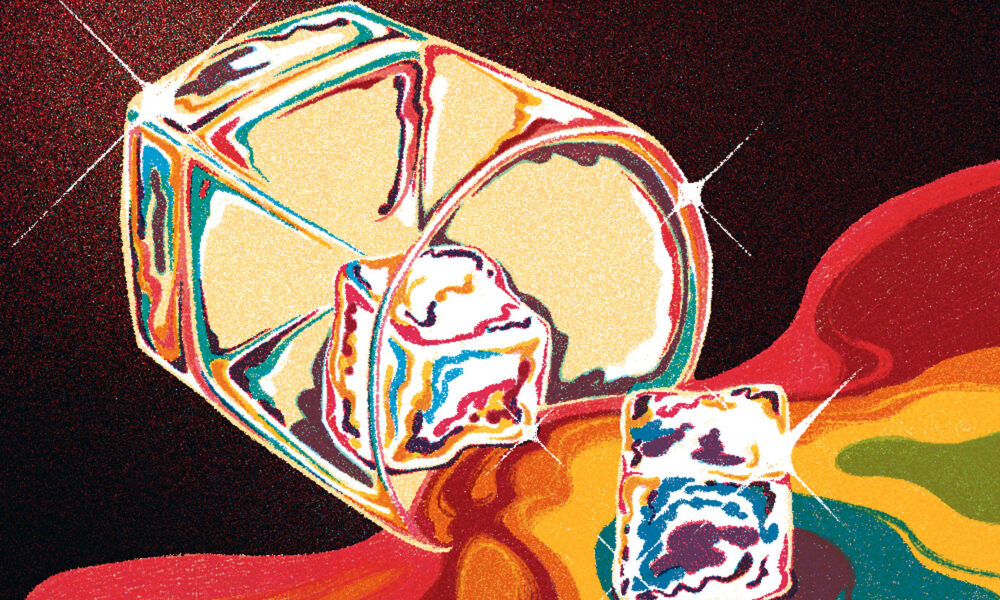It’s Friday night and you’re done with midterms. You leave the heteronormative institution (if you really ever can), text a few friends, pick your favourite club, and dance the night away. You’re listening to queer icons––Cher or Madonna, Gaga or Rihanna, Diana Ross or Gloria Gaynor, Fiona Apple or Kim Petras, take your pick. When Gaga, hitting new heights in “Free Woman,” sings “This is the dance floor / I fought for,” we must remember this place remains a welcome site of refuge, of possibility for queer life. You feel unbound to heteronormativity, you see a new world on the horizon.
A perplexing problem arises when considering the very fact that this night seems universally enjoyable. What’s better than spending the night with some of the best dressed or funniest or most dynamic people you will find? Why wouldn’t straight people want a queer world? On a serious note, for straight women or women who do not label their sexuality, queer spaces can be one of few places where there isn’t the outright threat of predators, protected by patriarchal (or frat) legal systems. This rings true, even despite the fact that intracommunal violence affects lesbian women and queer men can still be aggressive.
By “queering” our mainstream, public cultures propel rights and advancements––do queer people exist if they are not seen? While understandable, straight people’s increased entrance into queer spaces of gathering should be addressed critically. In fact, this problem, minor yet overplayed, detracts from the ways queer spaces––tending cis, white, male, and gay––currently do not serve or promote the diversity of the community.
Typical points about keeping queer spaces queer rest on dangerous, exclusive premises upheld by interlocking systems of domination. We fall down slippery slopes by insisting everyone must be queer. How does one prove this? Queer people of colour do not have the same, full privileges of disclosure that white queer people often conceal. Your coming out story is valid and important. You are heard. And we also see you. We see the spaces you hold. Thank you for teaching us the word intersectional.
We need queer spaces that centre not on profit, not on drinking cultures exclusively, but on inclusion and listening. For instance, the police regulate Black and Indigenous embodiment and transness––identities so often transcending the limited and repressive Western sense of the binary. They are threats to white supremacy, patriarchy, and heteronormativity. People want to venture into these spaces without suffering a politics of recognition that alienates them. I worry that this surveilling mode, both in its informal approach and its business strategy, of “knowing one’s queerness” legitimates an unjust security apparatus. We have internalized that establishments must know everything about their patrons to manipulate them, and this system works to kill us all and our planet. Alternatives abound.
You might be thinking: “We fought for this very approach!” We can do better. Perhaps our more radical ancestors can help us return to our community, re-vision this contested, uneven ground. It starts from a multitude of communal forms of being with each other that do not rely on sex, alcohol, or drugs, and that do not replicate the chains that bind us. Isolating our queer comrades who do not partake for religious reasons and our queer family members in recovery, we raise a momentary, and even unbeatable, buzz over our shared experiences. This haze blocks other opportunities from materializing, trounces networks of solidarity. The potential of queer libraries, cafés, and bookshops matter, but so do democratic and popular forms beyond institutions.
In taking these simultaneous options of the specialized bar and public space, and the uninstitutionalized private space with care, we may find pathways to inclusion. If queer culture values constructed spaces above all with no liberatory force, we neglect meaningful transformation, like with the land; we obfuscate queer complicities in the settler colonial project here and abroad. Where we can converse, find joy, love, and hope from one another across our differences, and no longer be alone, is where we can be authentically queer.








